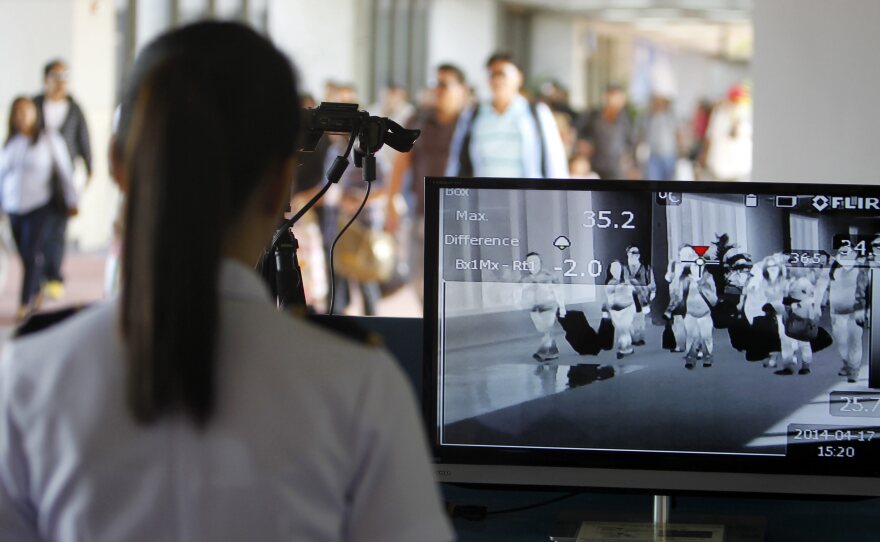
On April 24, an American health care worker based in Saudi Arabia flew from Riyadh to London to Chicago, then took a bus to Indiana.
Three days later, the man began experiencing shortness of breath and coughing. He also ran a fever. He visited the emergency room on April 28 and was tested by the Indiana public health lab. Today the Centers for Disease Control and Prevention has confirmed that he is the first MERS patient in the United States.
MERS, the acronym for Middle East Respiratory Syndrome, was first identified in Saudi Arabia in 2012. The virus very likely spreads from camels to humans and can cause pneumonia-like symptoms. The CDC says there have been 401 confirmed cases in 13 countries, with 244 in Saudi Arabia. Ninety-three people have died. Many patients worked directly with camels or had consumed camel meat or milk prior to contracting MERS.
The disease can pass from human to human, but there is "limited spread" in that way, according to the CDC, typically to a health care giver or a household member who has close contact. MERS is not believed to spread readily in community settings.
The CDC does not know how the patient in the U.S. contracted the disease.
The virus began making headlines this month, with approximately 50 new cases reported in Saudi Arabia in the past two weeks and new cases in the United Arab Emirates.
The CDC does expect more cases will surface in the U.S., but only among the medical staff who have cared for this U.S. patient and possibly the patient's family members.
"We've anticipated MERS reaching the U.S., and we've prepared for that and are taking swift action," said CDC Director Tom Frieden. "We're doing everything possible with hospital, local and state health officials to find people who may have had contact with this person so they can be evaluated as appropriate."
CDC characterized the risk to Americans as "low" but is seeking out passengers who flew with the man or traveled on the bus with him.
At this time CDC does not recommend any change in travel plans for the general public. But it does suggest that anyone who has visited countries in or near the Arabian peninsula and who develops a fever, cough or shortness of breath within 14 days should see a doctor.
Copyright 2014 NPR. To see more, visit http://www.npr.org/






